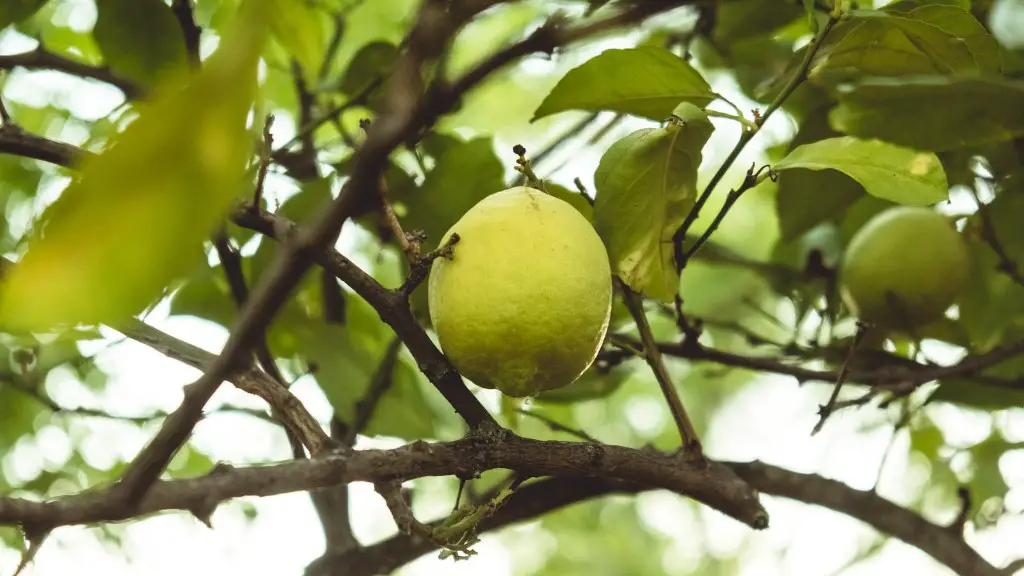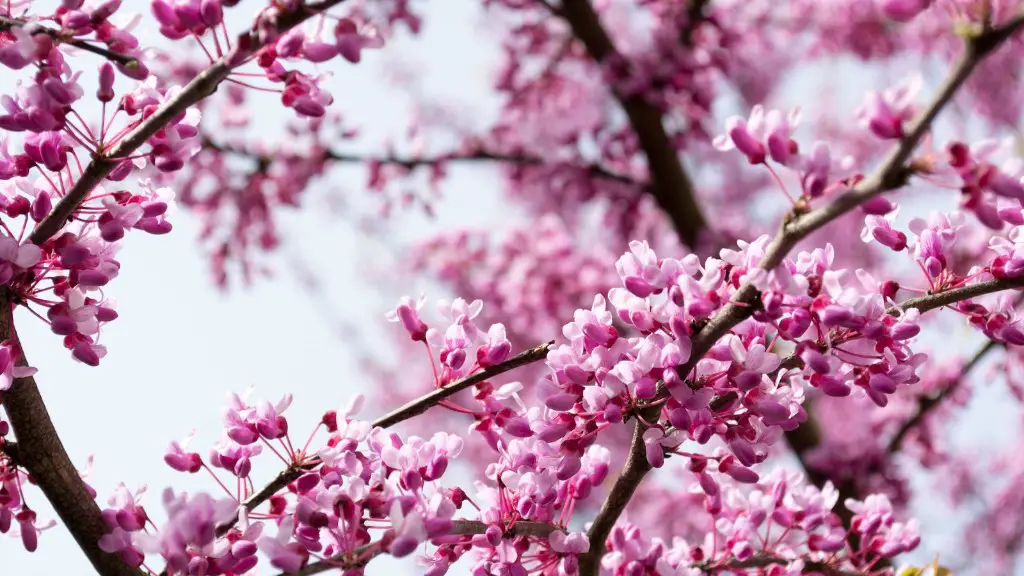A potted lemon tree is a wonderful addition to any home, providing both beauty and fresh lemons for cooking and baking. While lemon trees are relatively easy to care for, there are a few things you should keep in mind to ensure your tree stays healthy and produces an abundance of fruit.
Potted lemon trees are best cared for by placing them in an area with full sun exposure and watering them regularly. It is also important to fertilize the tree regularly and to prune it when necessary.
How long do lemon trees last in pots?
Lemon trees are a long-lived fruit tree, typically lasting 30-50 years. However, indoor potted lemon trees often have shorter lifespans than those planted outdoors in the ground. Under ideal conditions, lemon trees can live for over 100 years.
Water your Meyer Lemon Tree every one to two weeks, checking the soil weekly. If the soil feels dry to the touch two inches below the surface, it’s time to water. Slowly pour water into the pot and count to 20, or wait until you see water running out of the bottom of the pot.
Do potted lemon trees need full sun
Lemon trees require full sun in order to thrive, so make sure to choose a spot for your tree that gets plenty of direct sunlight each day. If you’re growing a lemon tree indoors, place it in front of a south-facing or sunny window. Once you’ve found the perfect spot for your tree, it’s easy to plant and care for it. With a little love and attention, your lemon tree will produce delicious fruit for years to come!
Lemon trees are a great choice for those looking to grow fruit in a container. There are many dwarf varieties that are well suited for life in a pot. Some of the most popular varieties include Improved Meyer, Lisbon Lemon, and Dwarf Eureka. However, almost any variety of lemon tree can be grown in a container successfully.
Where is the best place to put a potted lemon tree?
Lemon trees need a lot of light to produce fruit, so the optimal place for them is in a south-facing window. If you don’t have enough light, you can supplement with a grow light.
Lemon trees are susceptible to a number of problems, including citrus canker, sooty mold, botrytis blight, anthracnose, and lemon scab. Lesions on leaves are the first sign of citrus canker, and these can eventually lead to black moldy spots. Sooty mold is often caused by aphids, and can be treated by spraying the tree with water or an insecticide. Botrytis blight can cause fuzzy gray mold and brown spots on leaves, and is best treated by removing affected leaves and stems. Anthracnose is characterized by tan spots with dark outlines, and can be treated with fungicide. Brown scabs on the lemon tree’s fruit are caused by lemon scab, and can be treated with horticultural oil or sulfur.
How do I know if my lemon tree is overwatering?
If you notice the leaves of your lemon tree starting to turn yellowish, this can be an early sign of overwatering. The leaves will eventually begin to drop, and the roots will become mushy and black. Overwatering can be a serious problem for lemon trees, so it’s important to be vigilant and make sure you’re not giving your tree too much water. If you think you may be overwatering, cut back on the amount of water you’re giving your tree and see if the problem improves.
Lemon, lime and citron trees are the least cold tolerant and will suffer at least some damage when tem- peratures drop below 25ºF. Early ripening varieties can also be planted, so that the fruit may be harvested before cold weather arrives.
Can you water lemon tree with tap water
It’s important to neither under or over water citrus plants. While it’s often thought that more water is better, over watering can actually be just as harmful as under watering. This is because overwatering can lead to root rot, which can kill the plant. Therefore, it’s important to only water when the soil is dry to the touch. Use tap water if possible, as softened water can contain sodium salts which can be harmful to the plant.
When putting citrus in pots outdoors for summer, make sure to do so in a sheltered sunny position, and only when temperatures have increased. Also, keep some fleece handy in case of sudden cold nights in early summer. Low temperatures will inhibit flowering and may cause damage or even death.
Can I put my potted lemon tree outside?
It’s time to move your indoor plants back outside! The warmer temperatures of spring mean that many of your favorite fruits will love the outdoors again. Meyer Lemon Trees are a popular variety that loves higher temperature days.
It is generally recommended to repot citrus plants every two to three years, depending on the size of the plant and how quickly it is growing. However, if you are not sure, a good rule of thumb is if your citrus plant is more than 2 and a half times the height of the pot, then it is ready to be repotted. Potting should ideally take place in the spring or early summer when the plant begins to show signs that it is growing.
Can I put coffee grounds in my potted lemon tree
Adding coffee grounds to the soil of a potted lemon tree can be beneficial in several ways. The grounds can help to improve the acidity of the soil, which is important for lemon trees. The grounds can also provide additional nutrients to the soil, such as nitrogen and magnesium.
Lemon trees generally take three to five years to bear fruit. However, this can depend on the rootstock that the tree is grown on. While growing lemon trees can be rewarding, problems like blossom drop can occur. This is when many of the newly forming fruits fall off the tree before they can even start to grow.
Do potted lemon trees go dormant?
Citrus trees generally do not go into dormancy like other plants and instead need a good amount of light and some humidity during the winter. Although growth will slow during this time, it is still necessary to provide these conditions for the tree.
Orange and lemon trees can make a great addition to any home, and growing them in terracotta pots is a great way to add some extra flair. They do best in high humidity and in a sheltered, sunny spot, such as in front of a south- or west-facing wall. In summer, orange and lemon trees should be watered around once a week, using rainwater if possible. Feed them weekly with liquid seaweed and a citrus fertiliser.
Can potted lemon trees stay outside in winter
If you live in a cold climate, it’s best to protect your lemon tree from the freezing temperatures. You can do this by covering the tree with a tarp or blanket, or by placing it in a sheltered spot. Too many freezing nights will decrease the tree’s chances of survival.
If your lemon tree’s leaves are turning yellow, it could be due to a magnesium deficiency in the soil. You can correct this by mixing 30g of Epsom Salts per litre of water (approximately 2 tablespoons) and applying it to the tree.
Conclusion
To care for a potted lemon tree, you will need to provide it with enough sunlight, water it when the soil is dry, and fertilize it every few months. Place the lemon tree in a sunny spot and water it whenever the top inch of soil feels dry. Fertilize the lemon tree every two to three months with a citrus fertilizer.
Potted lemon trees are a beautiful addition to any home, and with proper care, they can thrive for years. Ideally, potted lemon trees should be placed in an area with full sun and well-drained soil. Water the tree when the soil is dry to the touch, and fertilize monthly with a citrus fertilizer. With a little TLC, your potted lemon tree will provide you with delicious lemons for many years to come.




